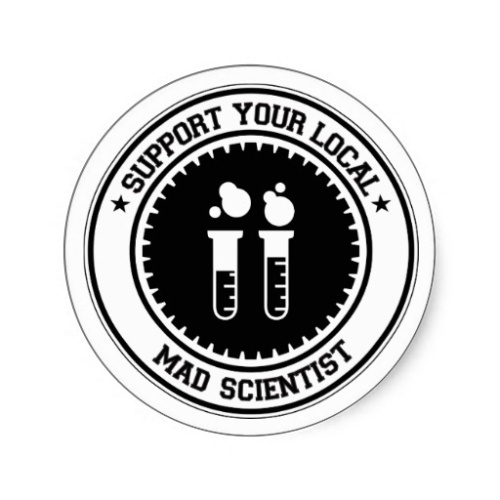The Pursuit of Unhappiness? Tapping into the Right Brain (for Artists and Creative Types)
Agnes McDermott stashed this in happiness
Interesting perspective, and contrary to what most people would like to experience in life.
The key is probably to not get stuck in your unhappiness, but when it's there, to use it for inspiration in achieving your artistic goals.
I'm sure Van Gogh would rather have been happy....:-)
http://www.huffingtonpost.com/anna-clark/the-pursuit-of-unhappiness_b_3592801.html
*****
We've all heard the story. Vincent Van Gogh was so tortured that he cut his hear off, sold only one painting in his lifetime and died virtually unknown. A century later, Van Gogh'sSelf Portrait with Bandaged Ear would fetch $90 million at auction. As with his other works, it was considered the product of a genius. And then there is Antonín Dvořák, who composed his song cycle Cypress Trees from a piercing longing for Josefina, his music student who rejected him in order to marry an earl. Yet, this sorrowful impetus for Dvořák's early work launched the career of the most renowned Czech composer in history. Neither Van Gogh nor Dvořák wallowed in unhappiness. Instead, they used their loneliness, deprivation and unrequited love as sources of great achievement.
Whether unconscious or conscious, artists tend not to create from a space of contentment, but from the tragic nature of human existence. But has modern life with its daily burdens left us inspiration-impaired? We're told that innovation and creativity are keys to success in the 21st century, but chronic busyness, hyper connectivity and child rearing are more likely to tire than inspire. How can we break free of constant "drag" in order to find the clarity and focus to concentrate on creativity?
Turns out you don't need time and money to burn in order to find the space to create, but you do need a method out of the madness.
Here are six ways to tap into the right side of your brain and make life interesting again:
Pursue your unhappiness. Stop ignoring or covering up sadness with activity. Try sitting with it. Once you become aware of the source of your frustration, you can take steps to address it. For example, I have discovered that inertia makes me miserable, so I have begun to view my life as an onion. When the outermost layer becomes too dry, I know that it's time to peel it off in order to expose something fresh underneath. Peeling off a layer calls for a change. Try making a new friend or letting go of a bad habit. Even minor changes can make a major difference.
Take 30 minutes a day for yourself. Carve out space each day to think about ideas that interest you. Write them down. Over time you might see a personal philosophy emerge or some vision worth sharing with the world. Considering a six-day workweek, 30 minutes a day equates to 156 hours per year. Conservatively speaking, anyone can write 200 words in an hour. This could produce 31,200 words per year. In less than two years you could have a book. (That's how mine happened.)
Indulge in hobbies with no practical value. In the pursuit of productivity, we can fall into the habit of thinking the only ideas worth our attention are those with commercial value. But when you channel your creative energy into something you love, you may stumble into success. Beloved children's author Beatrix Potter used to draw bunnies and little characters for fun. It seemed frivolous, but The Tale of Peter Rabbit and other books made her a rich woman, which led her to become one of England's great conservationists. If drawing your form of bunnies doesn't make you rich, draw them anyway. Someone you meet in your hobby may be the key to opening up some other opportunity.
Try nature therapy. Van Gogh, in a letter to his brother Theo, commented "I did not have to go out of my way very much in order to try to express sadness and extreme loneliness." But he added in the same paragraph: " ... these canvases will tell you what I cannot say in words, that is, how healthy and invigorating I find the countryside." If you think you're sad for no reason, you may actually besuffering from Nature Deficit Disorder. Go outside.
Get unplugged. Seems obvious but how long has it been since you spent a full day offline? Touring DC on our recent family trip, I purposely left my phone in the hotel for several days because I knew the temptation to check Twitter, LinkedIn, Facebook and my various email accounts would be too great. Spending three hours alone in the National Gallery - some of that time with Van Gogh - was great therapy.
Find something worth fighting for. Speaking of DC, there is nothing like connecting with the Founding Fathers to get another perspective on happiness. The Founders regarded happiness very differently than we do today. For them, happiness was contemplative and revolutionary. Even when Jefferson retreated from the "hated occupations of politics" to Monticello, he stayed productive, reading as many as 14 hours a day or indulging in the "tranquil pursuits of science." On July 1, 1776, just as he was finishing his work on the Declaration of Independence, he began keeping a temperature diary. Jefferson would take two readings a day for the next 50 years. (I was astonished to learn that Jefferson was also a forerunner in climate science.)
Stashed in: #happiness, Practice, Brain, van Gogh













9:56 AM Jul 17 2013